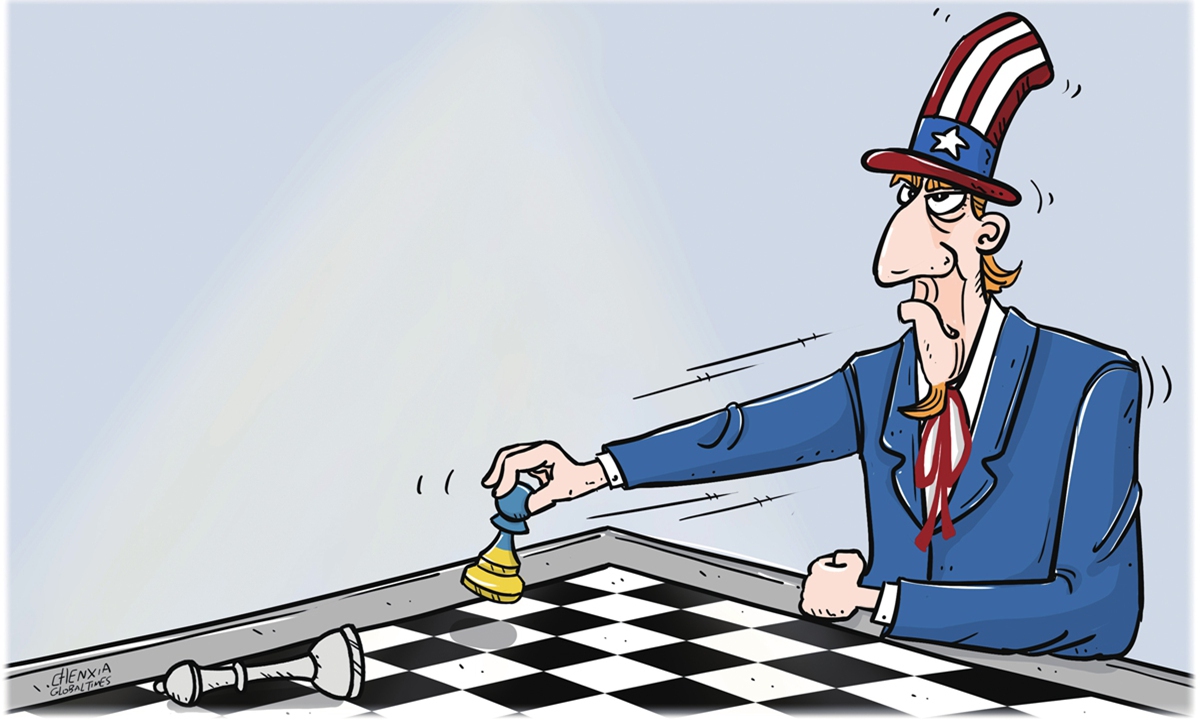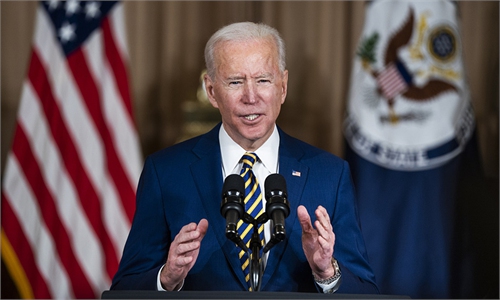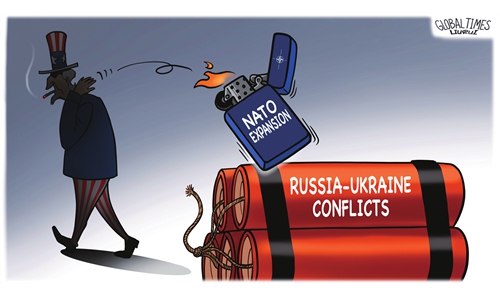The US tries hard to hijack world's view on Russia, but more countries not buying it

Illustration: Chen Xia/GT
While urging China to condemn Russia, the West, especially the US, is also pressuring India to take a clearer stance on the Russia-Ukraine conflict. According to the New York Times on Tuesday, India "could face scrutiny" as its balancing act on Ukraine is not satisfying enough.Since the tension between Moscow and Kiev escalated, Washington has been making all efforts to pull New Delhi into its anti-Russia united front. In a call with Indian Foreign Minister Subrahmanyam Jaishankar on Friday, US Secretary of State Antony Blinken stressed "the importance of a strong collective response to condemn Russia's invasion." However, India so far has not changed its neutrality on the issue.
India has been trying its best to find a balance between the US and Russia even before the ongoing tension, as India's junior minister for external affairs Rajkumar Ranjan Singh said on February 24 that India is "neutral" in the Russia-Ukraine conflict.
But the US wants India to break such a balance and tilt toward it. And Washington will likely try harder to rope in New Delhi by pressuring the latter even more, Liu Zongyi, secretary-general of the Research Center for China-South Asia Cooperation at the Shanghai Institutes for International Studies, told the Global Times. Liu believes that even if the US succeeds, it will be difficult for India to compromise on this issue.
However, Yuan Zheng, a deputy director and senior fellow of the Institute of American Studies at the Chinese Academy of Social Sciences, does not rule out the possibility of some minor changes in India's position on the Ukraine crisis to show a more pro-US gesture. "However, it is unlikely that New Delhi will condemn or criticize Moscow openly due to their close relationship," Yuan noted.
India has already gotten involved in the ongoing armed conflict in Ukraine unwillingly: An Indian student was killed in shelling in the eastern Ukrainian city of Kharkiv on Tuesday, according to the Ministry of External Affairs of India. Such a tragedy has given New Delhi even more reason to hope for a peaceful resolution of the Ukraine crisis. The US should give India room to decide its position on the matter, rather than try to interfere with its decision via public opinion and diplomacy.
Washington, as the root cause of the Ukraine tension, is in no position to ask other countries to follow it closely to condemn or sanction Russia. It cannot ask the whole world to pay for the chaos it has created. No party other than the US and its close allies in NATO should bear the responsibility.
As for now, it seems the advocacy of condemnation and sanctions on an international level has satisfied mostly Washington's interests. By further aggravating the situation, the US has brought its European allies closer to and more dependent on it. At the same time, it has finally realized its dream of ruthlessly suppressing its old enemy Russia as much as it wants.
But Washington's interests don't equal to the interests of the whole world. The US has previously tried to manipulate the international community's opinion in its favor under the guise of "maintaining the rules-based international order." Fortunately, it cannot use the same old trick to fool the world anymore. More and more countries have already realized Washington's shameless purpose of using them as chess pieces to advance its own interests.
This can be proven by the fact that countries that have decided to closely follow the US' sanctions decision are generally the closest allies of the US, the majority of which are also NATO members. On the contrary, Mexico and Turkey have claimed they won't impose any economic sanctions on Russia. In Latin America, Bolivia, Argentina, Brazil, and Panama refused to explicitly condemn or sanction Russia.
These countries are showing such an attitude to the US by their actions: We are not following you because it is neither in our interests nor conducive to the solution of the crisis.
In the end, no matter how hard they attempt to pressure other countries, the US and its NATO allies should be the only ones stewing in their own juice.


